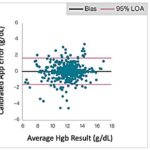Mariska Hargitay recently made a shocking revelation about her biological father after living with a secret for 30 years. The renowned actress, known for her role in “Law & Order: Special Victims Unit,” disclosed to Vanity Fair that her real father is Italian singer and comedian Nelson Sardelli, not the bodybuilder and actor Mickey Hargitay, whom she had believed to be her father all along.
The truth about Mariska’s parentage came to light in her new documentary, “My Mom Jayne,” which delves into the tragic events following a car crash in June 1967 that took the life of her mother, actress Jayne Mansfield, and left Mariska severely injured at the age of 3. The documentary reveals that before Mariska’s birth, Jayne had a brief affair with Nelson, which resulted in Mariska’s conception. However, Jayne ultimately reconciled with Mickey, her then-husband, before Mariska was born.
Raised by Mickey alongside her two siblings, Mariska only discovered the identity of her biological father when she came across a photo of Nelson in her 20s. This revelation shattered her understanding of her family history, leading to a difficult conversation with Mickey, who vehemently insisted that he was her biological father. Despite the emotional turmoil, Mariska eventually met Nelson for the first time at the age of 30, where she initially struggled with conflicting feelings of loyalty towards Mickey.
Over time, Mariska was able to reconcile with Nelson and his family, coming to terms with the complexities of her upbringing. She acknowledged that everyone involved had made the best decisions for her, and she found solace in identifying herself as Mickey Hargitay’s daughter. The actress, known for her portrayal of Olivia Benson in “Law & Order: Special Victims Unit,” expressed gratitude for the support and love she received from both her families.
In a candid discussion at the Hope for Depression Research Foundation’s 18th Annual HOPE Luncheon Seminar in November 2024, Mariska reflected on the challenges of growing up in a household overshadowed by grief and trauma following her mother’s tragic death. She emphasized the lack of tools and resources available at the time to process and understand the impact of such traumatic events.
Mariska is happily married to Peter Hermann since 2004, and the couple shares three children. Her directorial debut, “My Mom Jayne,” premiered at the Cannes Film Festival and is set for a TV release on HBO on June 27. The emotional documentary offers a poignant glimpse into Mariska’s journey of self-discovery and acceptance, highlighting the complexities of family relationships and personal identity. With the rise of technology, the world is becoming more interconnected than ever before. This increased connectivity has led to a plethora of benefits, such as improved communication, increased access to information, and enhanced global collaboration. However, it has also brought about new challenges, such as cybersecurity threats and data privacy concerns.
One of the most pressing issues facing the world today is cybersecurity. With the increasing reliance on digital technology for everyday tasks, the risk of cyber attacks has also grown exponentially. Cyber attacks can range from simple phishing scams to more sophisticated breaches of sensitive information. These attacks can have devastating consequences, including financial loss, identity theft, and even national security threats.
To combat these cyber threats, organizations and individuals must prioritize cybersecurity measures. This includes implementing strong passwords, regularly updating software, and educating employees on best practices for staying safe online. Additionally, advanced security measures, such as encryption and multi-factor authentication, can help protect sensitive information from falling into the wrong hands.
Another major concern in the digital age is data privacy. With the abundance of personal information being collected and stored online, there is a growing need for stricter regulations to protect individuals’ privacy rights. The General Data Protection Regulation (GDPR) in Europe and the California Consumer Privacy Act (CCPA) in the United States are examples of legislation aimed at safeguarding consumer data.
In order to protect data privacy, organizations must be transparent about the information they collect, how it is used, and who has access to it. They must also obtain consent from individuals before collecting their data and give them the option to opt out of data collection. Data encryption and secure storage practices are also essential for protecting sensitive information from unauthorized access.
Overall, as the world becomes increasingly interconnected through technology, cybersecurity and data privacy have become top priorities. By implementing strong security measures and respecting individuals’ privacy rights, we can create a safer and more secure digital environment for everyone. It is crucial for organizations and individuals to stay vigilant and proactive in the face of evolving cyber threats to ensure the protection of sensitive information.







